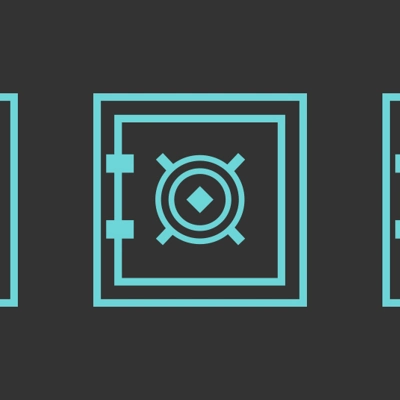Ethical savings accounts: at a glance
- What do I need to know? Greater awareness of environmental, social, and governance (ESG) investing options has led to a steady rise in the popularity of ethical savings accounts.
- What does it mean for me? There are different types of ethical savings accounts available that might align with your values.
- Why does it matter? Adding these savings accounts to a balanced portfolio could help you align your financial and ethical goals without limiting your earning potential.
Ethical savings accounts are on the rise, as it becomes easier than ever to balance personal values with building a financial legacy.
According to research from Economist Impact, 73% of banks plan to add more ESG propositions into their offerings to meet consumer preferences.
In this guide, you’ll learn about the ethical savings accounts and how they can complement your wealth strategy.
What are ethical savings accounts?
Banks and building societies manage ethical savings accounts in a way that abides by a specific set of values, often designed to have a positive impact on society.
Historically, some ethical savings accounts have had lower interest rates than alternative accounts. This is because they prioritised aims like charitable donations, raising funds, or giving back to the community, over profitability.
But ethical savings accounts have become more popular over the last decade, as awareness around ESG considerations has grown.
And many banks now offer competitive rates that rival traditional savings accounts. So, you can now grow your savings without compromising on values that are important to you.
Types of ethical savings accounts
Previously, ethical savings accounts might have referred to building societies, which share profits among members and sometimes promote community funding over pure profitability.
But the rising demand for ethical investing has led to an increase in different savings accounts with unique aims, causes, and ways of sharing profits.
Different types of ethical savings accounts include:
- green bank accounts
- charity savings accounts
- faith accounts, like Sharia accounts
- challenger bank accounts
What makes savings accounts ethical?
The positive impact of ethical savings accounts depends on how the bank invests your funds and shares its profits.
For example, a bank might offer a charity savings account that shares its funds with groups aligned with the same goals.
You can deposit your cash in the account in exchange for an agreed interest rate, like a traditional account. And if the bank is approved by the Prudential Regulation Authority (PRA), you’ll get Financial Services Compensation Scheme (FSCS) protection up to £120,000 on your deposit.
The bank might then use your deposits to lend money to charities, which pay back the loan with moderate interest. This is how the bank makes money and can pay you a high interest rate.
But ethical savings accounts are also defined by where the bank doesn’t invest your deposits.
For example, Sharia banks won’t invest funds in organisations or businesses that are forbidden under Islamic law.
This includes those who benefit from restricted industries, like gambling, alcohol, or tobacco.
Ethical banking and 'greenwashing'
The rise in ethical savings accounts has driven an increase in accusations of greenwashing, with the latest research suggesting over a 26% increase in reported greenwashing cases among EU banks.
Greenwashing is a term used to describe a bank or business that offers services that appear ethical on the surface, whilst not meaningfully changing their approach in practice. Members of the public may complain that the bank is doing the bare minimum to qualify as an ethical product, without making a genuine positive impact on the society it claims to serve.
So, it’s important to research your investment before adding an ethical savings account to your portfolio.
You wouldn’t accept a savings account that delivered a lower interest return than advertised, so why would you accept broken promises when it comes to your ethical goals?
What should you look for in an ethical savings account?
When considering which ethical savings account is right for you, it’s helpful to think about:
Your values
There are plenty of high-interest savings accounts available. But savings accounts with ethical goals can add something to your portfolio beyond a competitive interest rate.
Your wealth puts you in a unique position to make a positive impact on the world. So, it can help to think about what’s important to you and what you want to be known for when it comes to your financial legacy.
Ethical savings accounts can demonstrate your commitment to what matters to you financially and in other areas of your life.
Your financial goals
The rise in demand for ethical savings options has driven banks to offer more competitive products, including higher interest rates and greater ESG commitments.
Many banks now offer ethical savings accounts with varying their terms, providing competitive rates that rival traditional accounts.
The right ethical savings accounts will offer the returns you’re looking for, combined with the level of access you most need.
This can include:
- fixed-rate accounts: Letting you lock in a predictable interest rate in exchange for fixing your cash for a set time, so you can plan for exactly how much you’ll earn.
- instant access accounts: Giving you immediate access to your cash whenever you need it. Instant access accounts often come with a slightly lower interest rate than notice or fixed-rate alternatives.
- notice accounts: Balancing the benefits of access and higher interest. These accounts let you access your cash when you give an agreed amount of notice before you withdraw your money. They typically offer higher interest rates as a result.
Frequently asked questions about ethical savings accounts
Are there ethical banks in the UK?
There are many ethical banks in the UK that use their funds to invest in positive causes or that operate in a way that promotes sustainability, social progression, or religious principles.
Are there any ethical high-yield savings accounts?
Many ethical savings accounts now offer interest rates that are competitive with traditional savings accounts. So, you can make a positive impact without limiting your returns.
Ethical savings accounts to grow your wealth and impact
A rise in consumer demand for ESG investing options has inspired an increase in ethical savings accounts.
It’s now easier than ever to balance profitability with your personal values, growing your wealth without compromising on what matters to you.
Open an ethical savings account with Flagstone
Flagstone offers easy access to a range of ethical banks, letting you build a savings portfolio with confidence.
All on one platform, with one login.





